Keywords: Christmas Story
There are more than 200 results, only the first 200 are displayed here.
-
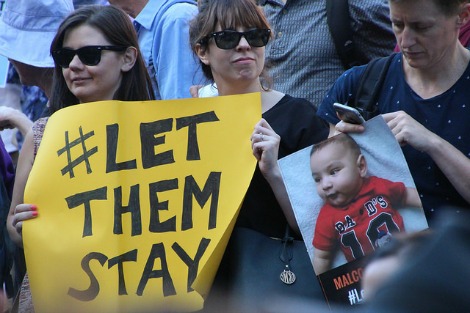
AUSTRALIA
- Andrew Hamilton
- 11 February 2016
15 Comments
The High Court decision on detention in Nauru came down just before the Christian season of Lent. It left the government free and determined to deport many young mothers and children to Nauru. For the mothers and children deportation will bring new trauma with renewed threat to their already precarious mental health. For the Australian public it again makes us ask what brutality, even to children, we are ready to tolerate. The savagery of this treatment is a suitable subject for Lenten reflection.
READ MORE 
-

AUSTRALIA
- Frank Brennan
- 04 February 2016
24 Comments
Following Wednesday's High Court decision, the moral depravity of Australian funded offshore detention of asylum seekers, including children, is to continue. There is no joy to be found in our High Court applying a Constitution even more bereft of human rights protections than that of Nauru. It's time for our politicians to address the political and moral question: what purpose is actually served by sending this mum and her baby back to Nauru, when the boats have already stopped and will stay stop?
READ MORE 
-
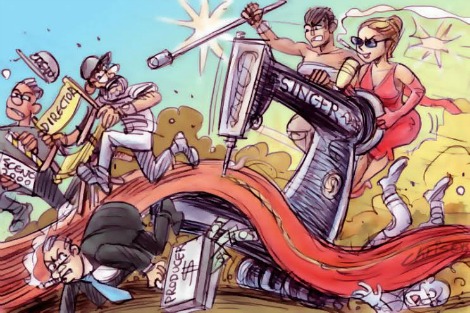
MEDIA
- Rochelle Siemienowicz
- 13 January 2016
The success of the Australian comedy The Dressmaker is thrilling to those watching the local film industry. There's more to cheer in the fact the film is proudly female in both story and production. We're not as bad as Hollywood, but even in Australia, there are not enough films for women, about women and by women. Since the 1970s male directors have been responsible for more than 85 per cent of the feature films made. Why does it matter? Because women are more likely to tell stories about women.
READ MORE 
-
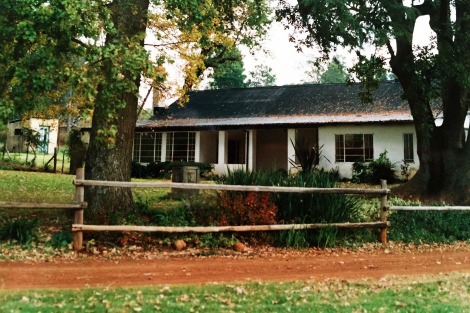
MEDIA
- Catherine Marshall
- 18 December 2015
4 Comments
On her last Christmas, my mother produced a Christmas dinner for 14 people on an ancient anthracite stove in the kitchen of the farmhouse I'd recently moved to. Nothing could distract her from the preparation of this Christmas lunch on a stove that was built last century - except for the pain that had been growing for some months just beneath her ribs. As she stirred the stock and pressed cloves into the ham I saw a wave of discomfort wash over her. It was uncharacteristic and unnerving.
READ MORE 
-
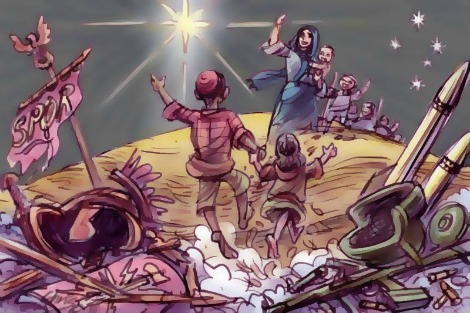
AUSTRALIA
- Andrew Hamilton
- 17 December 2015
19 Comments
The pastel coloured domesticity of the images of Jesus' birth does not do justice to its context. Herod's sending out first his spies to find where the Messiah was to be born, and then his soldiers to eradicate the threat the child posed to national security, may not appear on Christmas cards, but they frame the story of Jesus' birth. The disjunction between the tenderness of the Christmas stories and the brutality of their public context is mirrored in the conflict between the humane values of the Gospel and the harsh instrumental values of the public world in any age.
READ MORE 
-

RELIGION
- Frank Brennan
- 04 December 2015
1 Comment
'Tonight, gathered here in the Southern Cross Club in the national capital, gathered as Eureka's children. We affirm that there is room for everyone under the Southern Cross. I hope you will return to Canberra carrying the Southern Cross flag when we proclaim the Australia Republic on 1 January 2020 which will be two elections after Australia last had a monarchist leader of a major political party. Tony Abbott is the last of his type. Whether the prime minister honoured to witness the proclamation is Malcolm Turnbull, Bill Shorten or another matters not.' Annual Dinner for Eureka's Children, Southern Cross Club, Canberra, 3 December 2015.
READ MORE
-

RELIGION
- Frank Brennan
- 27 November 2015
2 Comments
'The crisis of child sexual abuse in our societies has required that our institutional procedures be more transparent and that we learn from the ways of the world in exercising power openly and justly. This means we have to restructure some of our church arrangements so that power is exercised accountably and transparently. All of us who have positions of influence and power in institutional churches need to be attentive to the voices of those who have suffered within our institutions.' 'Discerning the place for the prophetic voice and pragmatic cooperation of the churches in the great moral questions of the age', address to the Association of Practical Theology in Oceania conference, 26 November 2015.
READ MORE
-

MEDIA
- Rochelle Siemienowicz
- 23 November 2015
10 Comments
The success of the Australian comedy The Dressmaker is thrilling to those watching the local film industry. There's more to cheer in the fact the film is proudly female in both story and production. We're not as bad as Hollywood, but even in Australia, there are not enough films for women, about women and by women. Since the 1970s male directors have been responsible for more than 85 per cent of the feature films made. Why does it matter? Because women are more likely to tell stories about women.
READ MORE 
-

ARTS AND CULTURE
- Tim Kroenert
- 17 September 2015
5 Comments
When Sin-Dee rants about the 'fish' with whom her pimp boyfriend has been cheating, she is a transgender woman using a derogatory term for a person who is socially and biologically female. Her story does not merely transgress traditional gender binaries; it assumes the perspective of marginalised characters to reveal through their lived experiences the ways in which gender is both an individual and social construction.
READ MORE 
-

AUSTRALIA
- Michael Mullins
- 14 September 2015
46 Comments
After almost ten years, I'm into my final week as editor of Eureka Street. It's pleasing that we were successful in the Australasian Catholic Press Association 'industry' awards announced in Broome on Thursday evening, where we were named Best Online Publication and Publication of the Year for 2015.
READ MORE 
-
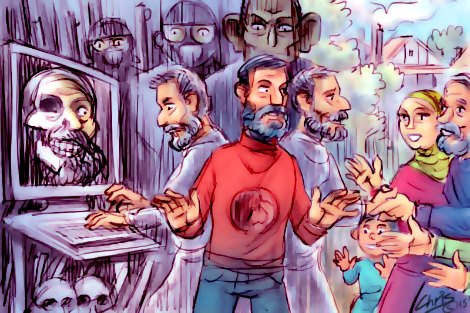
RELIGION
A poorly-organised ill-resourced minority community often feels it has better things to worried about than 'white' converts who, like converts to any faith or belief system are known for their zeal. If the government really imagines young Muslims and converts are ripe for 'radicalisation', an excellent investment they could make would be in support services for new Muslims. In our lucky country, there is much loneliness in this group and many reasons to feel marginalised.
READ MORE 
-

AUSTRALIA
- Jim McDermott
- 02 March 2015
The inner sanctum of the Prime Minister’s office, filled with smoke. DON DRAPER sits in a chair, cigarette in one hand, tumbler of Scotch in the other.
Across, Prime Minister TONY ABBOTT. Around them, members of his cabinet.
GREG HUNT (coughing weakly): We really don't allow smoking in here.
CHRISTOPHER PYNE: Plus, how do you still look so good? It’s 2015.
Draper turns Pyne's way. His eyes glitter like steel.
DON: Really, that's what you want to talk about right now, my looks?
TONY: Now listen, Don, I did it all just like you said. Pushed up the spill motion to keep the momentum from building, said I would be more consultative, got on with the business of governing. And yet two weeks later ... Read more
READ MORE